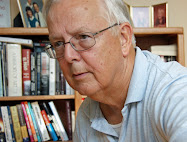 Welcome Home, Sir takes the reader into three realms that may well be unfamiliar territory: the biochemistry lab, Israel's Golan Heights, and the world of hypochondria. The main character, Doctor Ethan Meyer, has served in Israel's military, and key experiences show up in frequent brief flashbacks. Now he runs an American university lab and deals with the inevitable politics that turn vicious and may destroy a career almost before it begins. Privately, he worries that every twitch, every variation in his pulse is the first sign of a terminal disease. He knows he's a hypochondriac and sees a doctor to help him struggle against it.
Welcome Home, Sir takes the reader into three realms that may well be unfamiliar territory: the biochemistry lab, Israel's Golan Heights, and the world of hypochondria. The main character, Doctor Ethan Meyer, has served in Israel's military, and key experiences show up in frequent brief flashbacks. Now he runs an American university lab and deals with the inevitable politics that turn vicious and may destroy a career almost before it begins. Privately, he worries that every twitch, every variation in his pulse is the first sign of a terminal disease. He knows he's a hypochondriac and sees a doctor to help him struggle against it.All of this makes for a good premise. The idea is that Meyer's hypochondria stems from his military experience, but that doesn't come through clearly enough in the novel. The chapters are too short and need development. As far as it goes, the novel is well-written and enjoyable, but it literally falls short. I recommend the novel for its insights into new territory, but it really needs to be at least twice as long.






















